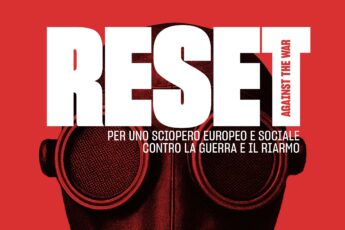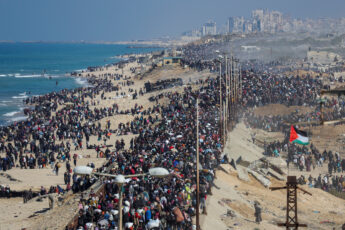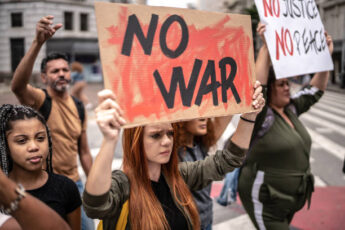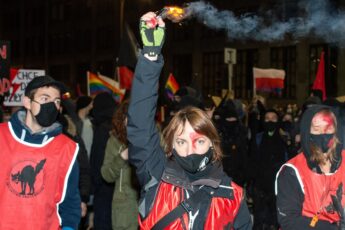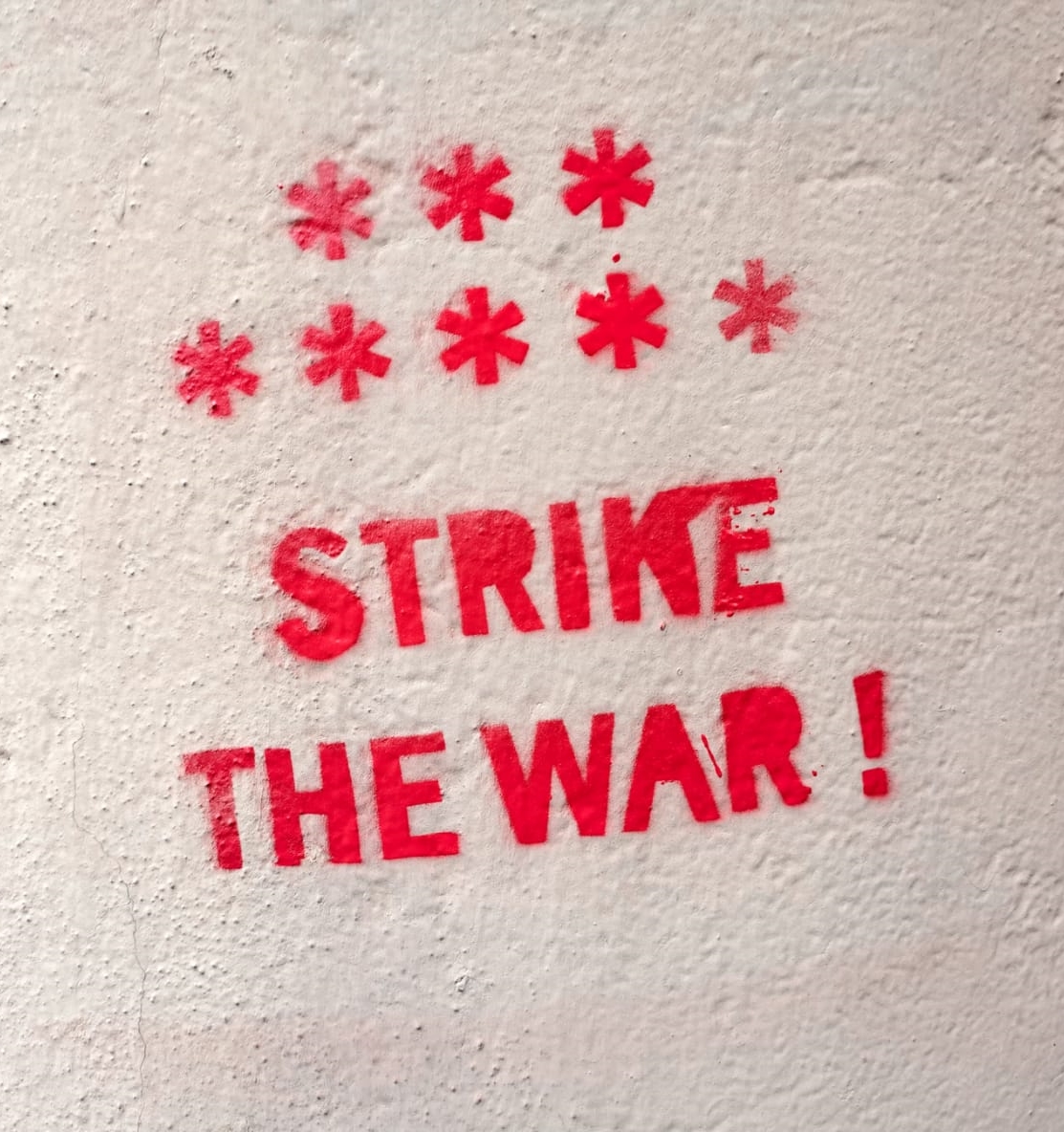
The third meeting of the Permanent Assembly Against the War was held on Sunday on zoom. The meeting saw the overall participation of more than 100 people from Germany, Ukraine, Russia, Greece, Italy, Slovenia, Kyrgyzstan, Turkey, France, Bulgaria, Netherlands, Australia, United Kingdom, United States and Czech Republic.
This third meeting confirmed the role of the Permanent Assembly as a political space able to bring people together and involve new people and new regions. To bring together this heterogeneity of contexts and backgrounds into a common effort to build a transnational politics of peace is something valuable in itself, and makes it more and more urgent to keep fostering the challenge of this process. This doesn’t mean the situation is excellent: the war in Ukraine continues and the global situation worsens. We discussed about important ongoing solidarity initiatives, and the need to enhance grassroots connections among activists, trade unionists, women, workers and migrants. However, the discussion made all aware that we are not facing simply a local war, but a third world war that is establishing a new global order. Different contributions clarified what that means: right wing, nationalistic, chauvinistic and more and more violent patriarchal discourses are on the rise. Increased militarization of the economy, anti-labor policies, neoliberal reforms – including the new labor law in Ukraine –, and environmental crisis: all grow within this scenario. More divisions and hierarchies among workers and migrants are created, while nation states and capital are celebrated as the only horizon of our life. Ideas of social transformation are excluded and ostracized more than before.
During the discussion a clear awareness emerged: we need a transnational anti-war, feminist, and migrant political initiative around the globe. We need a long-term anti-war strategy while we keep mobilizing on a daily basis. But what does it mean to build a long-term strategy?
It means first and foremost to acknowledge that the question is not how we fight against this or that power. The question for us is how workers, migrants, women, lgbtqi* people, autonomous movements, the poor and exploited, anti-capitalists, environmentalists, and trade-unionists can become a power. The question for us is how to foster a movement where people living in different contexts and continents can find their voice. These are the roots for a transnational politics of peace.
Building a long-term strategy while fighting on a daily basis means also to acknowledge the fact that to play with power can be dangerous: dreams of revolution can be disappointing. We need to understand the reality we live in. This doesn’t mean to keep silent, to wait better times or to retreat in safe zones, comfortable slogans or struggles. On the contrary, it means to assume the goal of bringing a new force in this world. A transnational force. We don’t need a new group, but a new discourse that can be recognized, shared, and used to communicate and build further connections. A discourse that can give the idea that things can be transformed and will be changed. The Permanent Assembly Against the War is a political space and infrastructure that can raise political imagination and push this process.
Several interventions pointed at the need to imagine practical actions to set this process in motion. On the 1st of May, the call to “strike the war” showed that a shared transnational discourse can help to promote local political initiatives. We now must go beyond this: our task should not be simply to show to others who we are. What we need is a meaningful strategic perspective that helps people to overcome political deadlocks. Something that is able to communicate with those in Europe, Russia, Central Asia and beyond who are today trapped within a world war scenario made of intertwining hierarchies, nationalisms, and economic constraints. A perspective that can be assumed not just by people and groups participating in the meetings of the Permanent Assembly Against the War, but by anyone animated by an urgency to fight against this situation. Quoting the Feminist Antiwar Movement in Russia: ‘We need to learn to strike again’. The question then is how to translate discourses into struggles involving subjects who are everywhere coping with the injustices that provoked this world war scenario, but are fragmented and divided by different conditions of production and social reproduction.
As Permanent Assembly Against the War we will collectively pursue these goals taking the following steps:
– We will write collectively a political manifesto on the challenges of a transnational politics of peace. This text will be published before the the NATO summit in Madrid (28-30th June) and will show our refusal to being passive pawns strangled between the restructuring of the Atlantic Pact, Putin’s regime and the ambitions of Xi’s China. This text can be a reference point for the anti-war protests during the NATO summit.
– We will hold next online meeting on the 3rd of July, where we will evaluate more recent developments, continue to deepen our common discourse and imagine new actions against the war and for a transnational politics of peace.
– We will participate in the transnational meeting organized by LevFem and TSS Platform in Sofia, Bulgaria, on the 8-11 September, and actively contribute to its organization and to an enlarged discussion for a transnational political initiative.
Whoever is interested in taking part in the process can sign up in the No-to-War mailing list by sending an email to: tss-no-war-list-subscribe@lists.riseup.net


